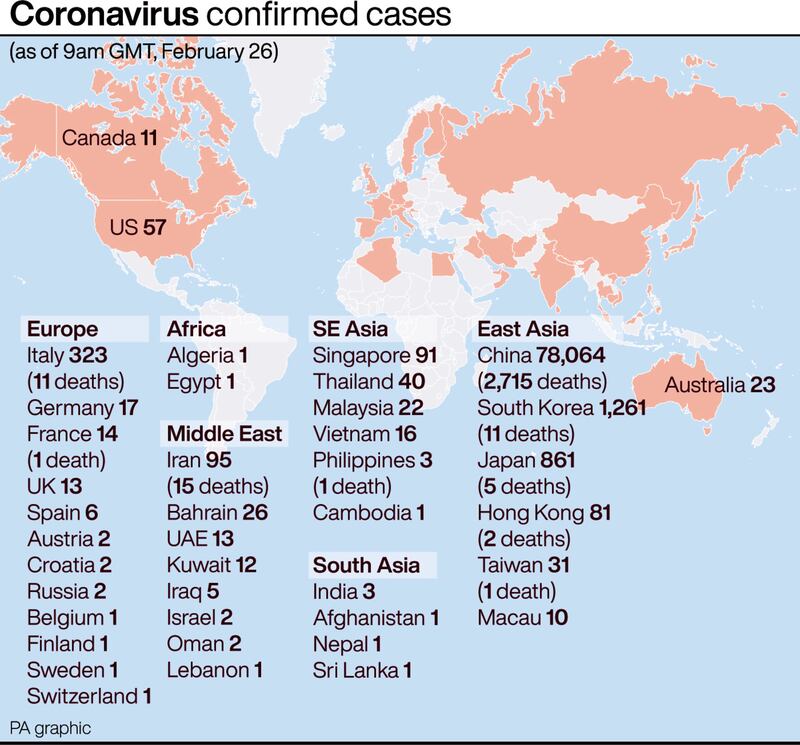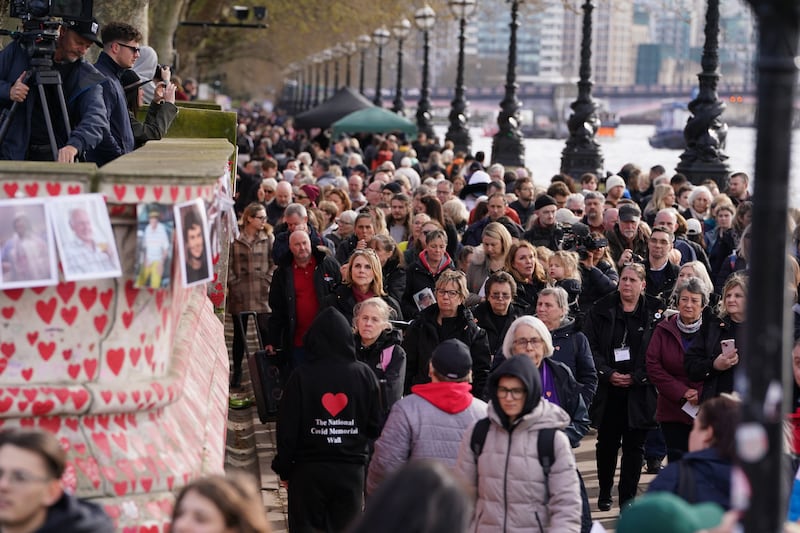The Guinness Six Nations match between Ireland and Italy, scheduled for March 7 in Dublin, has been postponed due to the coronavirus outbreak, the Irish Rugby Football Union has announced.
The Irish Rugby Football Union (IRFU) announced the decision following a meeting with Health Minister Simon Harris and his advisers today.
#shouldertoshoulder
— Irish Rugby (@IrishRugby) February 26, 2020
Ireland's @SixNationsRugby matches v Italy are off.
We will immediately begin to work with our Six Nations partners to look at the possibility of rescheduling the matches and would hope to have an update on this in the coming days.https://t.co/80ByyvOd3E
China has reported 77,658 cases and 2,663 deaths following the outbreak of the Covid-19 virus that has spread to a variety of countries, including Italy, where authorities have swiftly put in restrictions.
Authorities in Italy have reported that the number of people infected in the country grew to 322, or up 45 per cent in 24 hours, and 11 people have now died.
Austria, Croatia and Switzerland also reported their first cases linked to the outbreak in Italy, while Spain and France recorded new ones, also involving people who had been to northern Italy.
France recorded its second death, a 60-year-old Frenchman who died in a Paris hospital.
The first positive test in South America has also been recorded in a 61-year-old Brazilian man who had recently been to northern Italy.
For the first time, the number of new cases officially reported outside China has exceeded new cases reported by Beijing, Reuters has reported.
It said figures from the World Health Organisation (WHO) showed there were 427 new cases reported in 37 countries on Tuesday, compared with 411 reported by Beijing.
IRFU chief executive Philip Browne said: "We had a very positive meeting with Minister Harris and his advisers where we requested an instruction as to the staging of the rugby international matches over the next weekend.
"At the meeting we were informed that the Public Health and Emergency Team has determined that the series of matches should not proceed in the interest of public health.
"The IRFU is perfectly happy to comply with this instruction.
"We will immediately begin to work with our Six Nation partners at the possibility of rescheduling those three matches and I would hope to have an update on that in the coming days.
"We have a lot of work to do with our Six Nations partners and with Italy, who are going to have to make a lot of rearrangements."
Ireland were also due to play Italy in an Under-20 Six Nations game and women's international that weekend.

Ireland's chief medical officer said today that the decision to call for the cancellation of the match in Dublin was "not made lightly".
Tony Holohan said it was "the only responsible decision that could have been made".
On Tuesday the Department of Health's National Public Health Emergency Team recommended the match scheduled for March 7 should be postponed.
Dr Holohan said mass gatherings of people create a particular risk from coronavirus.
Speaking in a media briefing at the Department of Health, he added: "The risk assessment in relation to the specific mass gathering of the rugby match, we made a clear recommendation in relation to that, and that's been a matter of public discussion and we will be meeting the IRFU later.
"We also set up a process whereby criteria can be both developed and applied to help in the management of decisions around other mass gatherings that might arise over the coming weeks and months.
"What was of concern to us was the nature of the mass gathering, a large group of people coming together from an affected area where we don't believe we fully understand the community transmission pattern in that area.
"We think there may be many more cases there that have yet to be identified. We don't think any other responsible decision could have been made."








